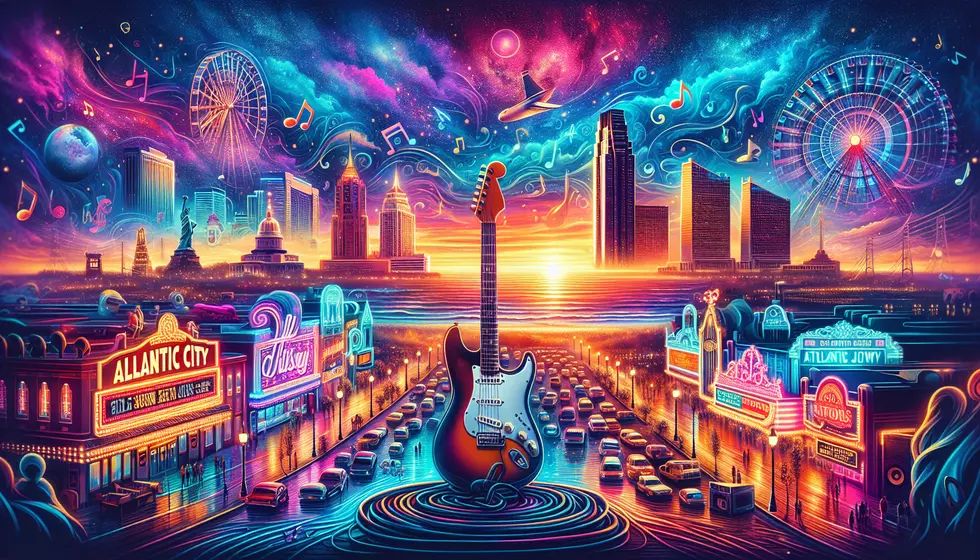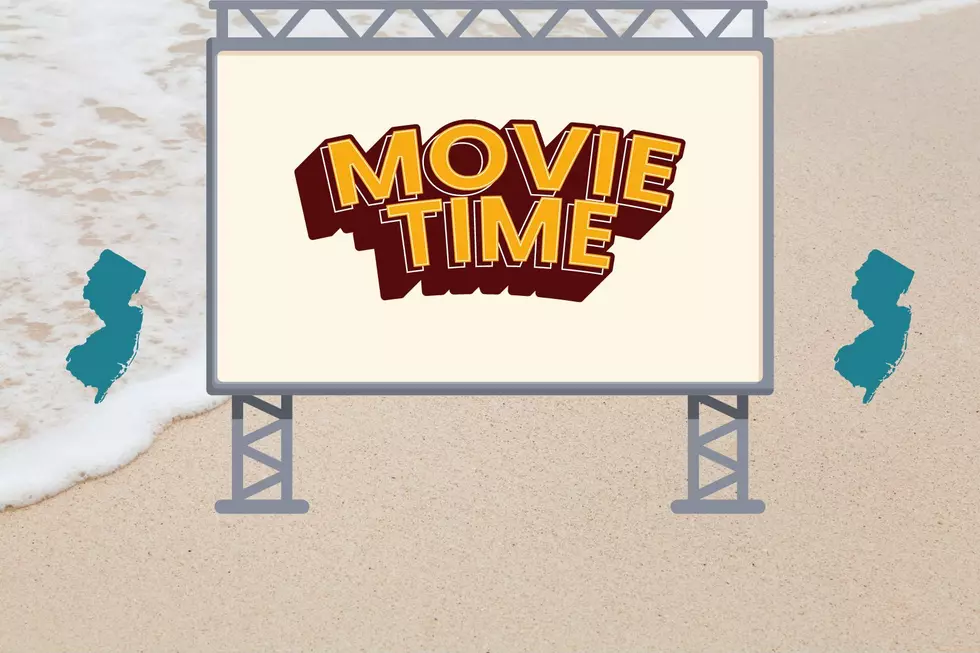
‘Blinded by the Light’ Was Made for One Person: Bruce Springsteen
Blinded by the Light director Gurinder Chadha says being given total freedom to use Bruce Springsteen's songs for her movie was both a privilege and a source of pressure.
The new film is based on her longtime friend Safraz Manzoor's memoir Greetings From Bury Park: Race, Religion and Rock N’ Roll. It tells the story of a British-Pakistani Muslim teenager named Jarvis who longs to escape his economically depressed hometown, and learns to express those desires and understand his parents' point of view with the help of Springsteen's music.
Chadha, best known stateside for her 2002 hit Bend It Like Beckham, tells UCR she dealt with the stress of all the decisions she had to make while making Blinded by the Light by focusing on an audience of just one person.
Were you nervous about how Springsteen would react to the movie?
At this time last year I was sitting in a movie theater in New York about to show Bruce my director's cut, and I was incredibly nervous. I walked into the room and there were a few people in there including Jon Landau, his manager; [Landau Management partner] Barbara Carr; [Blinded by the Light executive producer] Tracy Nurse; and George [Travis], his tour manager. We were all waiting for Bruce, and I did get a bit nervous. And then Landau said to me, 'What are you going to do if he doesn't like the movie?' But every decision I made in the movie was thinking, 'Well, will this work for Bruce?' I made the movie for him, not anyone else. I was making the movie not for the financiers, not for the audience, not for you. I was making a movie that I thought Bruce Springsteen would appreciate. I had the privilege but also the pressure to use his life's work up to 1987 in my film. I could use any song I wanted. So I had a lot of pressure and responsibility to use that well. I kind of felt like he wouldn't hate the movie, but I didn't know if he'd think it was too much. I didn't have any idea, to be honest with you. All I could do was what I thought was right. So he walked in the room, and I explained that the sound and the pictures were terrible because they were off my editing copy, and he said, 'Okay, let's watch the movie.' I sat kind of behind him, so I could see the side of his face. At some point he started smiling, and at other points he was very into what was going on.
How did you choose the songs? Did Manzoor or Springsteen or his camp have any input?
Bruce's camp just said to use what you like. While I was working on the script, I had all the lyrics in front of me, for all the songs. And I would call Sarfraz, I'd say, 'Do you know a lyric that fits this situation for Jarvis?' if I couldn't find one. Then Sarfraz, who has great knowledge of every single lyric, would come back and say, 'Well, there's this song and this song.' We had some very nervy discussions about specific lyrics. So there were great songs that I didn't use in the end, because I didn't feel the lyrics told the specific story we needed to tell of Jarvis' journey. The ones I use are the ones that propel his story further.
Were Jarvis' poems all really written by Manzoor?
Yes, all of the poems in the film are original poems by Sarfraz from that time. And then the last poem I got him to write as well. It was based on one that he wrote before, when he was younger.
Were you a Springsteen fan before this project?
Oh yes, I was a massive Springsteen fan in my school days. I actually went to see him in 1984 in England. That's how Sarfraz and I became friends, because we felt we were the only Asian Bruce fans in England. So we were friends first. It was was 10 years into our friendship when Sarfraz said, 'I think I'm going to write this memoir.' I said great, and when he was writing it, Bend It Like Beckham had been a big hit. So he said, 'Look, if anything ever happens with this, Gurinder is the person who will get it and be able to make something with it.' Sure enough, he gave me the galleys before it was published, and I said, 'Yeah, I know how to turn this a movie. We'll have to move away from the memoir a bit and create more drama.' But in its essence, it is based on his true story. And he did go on to become a writer; he's living today as a writer.
There are no easy answers and no magical resolutions to the problems each character faces. Was it important for you to keep the movie so grounded?
The biggest theme of the movie was the kid realizing that although he might want to get out of [his economically declining hometown of] Luton, Luton will never leave him. And the same is true of Bruce. All those songs that Bruce wrote – you know, "Gotta get out while we're young" – well, he still lives in New Jersey. In fact, that's what he says in his [Broadway] show. He starts by saying, 'I'm a fraud. I wrote all these songs to get out, and now I live 10 minutes from where I was born.' So I think the ending is really in the speech where Jarvis says his ambition is to build bridges to his ambition, but not build a wall between him and his parents. And that's true of everybody in that position. All kids want to follow their dreams, but they want to take their parents with them – regardless of your cultural background or whatever. All parents have dreams of what they want their kids to do, and all kids have dreams, and sometimes those don't match. Many people like Bruce even suffered from not having a parent who said, 'Well done, son, I'm proud of you.' He never got that from his father really, until late in life, and that affected him a lot. I think that's true of a lot of people, and that's why this film is so universal and emotional for people.
Are you surprised by the recent flood of high-profile rock movies, and are you concerned about how it might affect the reaction to your film?
Yeah, I was surprised. I knew about the Queen movie for a long time. I didn't know about the Elton John one, and I really didn't know about Yesterday either. I only realized about that a few months back. But ours is quite different because ours is based on a true story. It's not a biopic; it's a true story about how music can help you find your voice.
Did you ever think of having Bruce appear, either as himself or portrayed by an actor?
No, no, very cheesy. We knew he wouldn't like that. We were, like, 'No, can't go there.'




